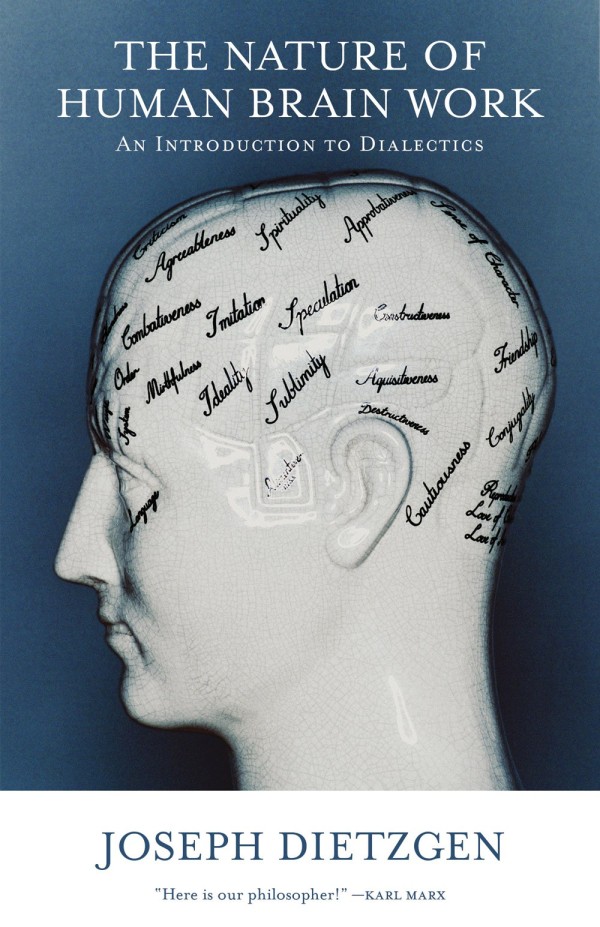
The Nature of Human Brain Work
An Introduction to Dialectics
Called by Marx “The Philosopher of Socialism,” Joseph Dietzgen was a pioneer of dialectical materialism and a fundamental influence on anarchist and socialist thought who we would do well not to forget.
About the book
Called by Marx “The Philosopher of Socialism,” Joseph Dietzgen was a pioneer of dialectical materialism and a fundamental influence on anarchist and socialist thought who we would do well not to forget.
Dietzgen examines what we do when we think. He discovered that thinking is a process involving two opposing processes: generalization, and specialization. All thought is therefore a dialectical process. Our knowledge is inherently limited however, which makes truth relative and the seeking of truth on-going. The only absolute is existence itself, or the universe, everything else is limited or relative. Although a philosophical materialist, he extended these concepts to include all that was real, existing or had an impact upon the world. Thought and matter were no longer radically separated as in older forms of materialism. The Nature of Human Brain Work is vital for theorists today in that it lays the basis for a non-dogmatic, flexible, non-sectarian, yet principled socialist politics.
Contents
- Introduction
- Pure Reason or the Faculty of Thought in General
- The Nature of Things
- The Practice of Reason in Physical Science
- “Practical Reason or Morality
- A Dietzgen Biography. Cosmic Dialectics: The Libertarian Philosophy of Joseph Dieztgen (Larry Gambone)
- Thinking About Thinking
- Contradiction Inherent in Thought
- The Limitations of Our Knowledge
- The Importance of Error
- Though Must Have an Object
- Idealism vs. Materialism
- Dietzgen’s Critique of Bourgeois Materialism
- The Essential Unity of the World
- Cause and Effect
- The Problem of Language
- Science vs. Scientism
- Dietzgen’s Individualism
- Dietzgen’s Concept of History
- Dietzgen and the Spiritual
- Dietzgen’s Politics
- Economics
- A Dietzgen Biography













